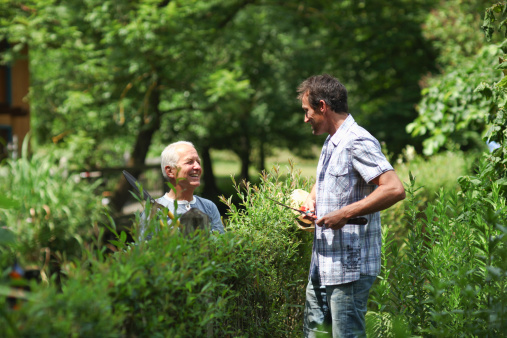A Sangha for our times

By Davie Philip
Sangha is a word in Pali and Sanskrit meaning “association”, “assembly,” “company” or “community” and often refers to the monastic community of ordained Buddhist monks or nuns. When Buddha’s disciples asked him, “Isn’t Sangha half of the path to awakening?” the Buddha responded, “No, it is the entire path.” To realise our fullest potential we don’t have to join a monastery but I think we do need to live closer to one another and to collaborate in meaningful ways.
We have sustained ourselves in ‘communities’ of one form or another for millennia. Sharing resources and creating a supportive environment to live in is at the heart of what it is to be human. Since we emerged from the caves, we have lived in large extended families, tribal networks or small villages where we were deeply connected with each other and to nature.
Considering our basic needs for shelter and community, is there an alternative to just buying a home and hoping that you might get to know your neighbours?
Although I’ve been involved in Cloughjordan Ecovillage since the project began, and the sense of neighbourliness is extremely high there, I still don’t own a house. Like many people currently find themselves, I don’t earn enough to secure a mortgage, and, as the literal translation of the word is ‘the grip of death’, I don’t think I even want to! So what are my options?
One-way to re-grow community and take care of our housing needs is the concept of cohousing. This is a way for a group of people to work together to co-create and co-own places that offer both privacy and community, along with the values of solidarity and mutual concern. I believe this approach could create a richer way of life with lower running costs and reduced environmental impact.
We recently launched ‘Cloughjordan Cohousing’. It’s a cooperative company that will build and manage a cohousing development within the Ecovillage. We want to address the issues of affordable housing, attract a diversity of ages, especially younger people, and fulfill a desire to live in smaller units with shared facilities. As well as terraces with one and two bedroom houses and studio apartments, a ‘common house’ will include cooking and dining space, guest rooms and a laundry, as well as meeting and relaxation spaces. Shared energy, a car pool, and green spaces will also help reduce costs and make this a warm and welcoming place to live.
But you don’t necessarily need to relocate to an ecovillage or a cohousing project to live more cooperatively, lots of options are emerging for securing housing together. Cohousing might not suit everyone, but it could provide an alternative to the growing number of people who are struggling to purchase a home and want a simpler, greener, more sharing way of life that helps create a more collaborative atmosphere overall.
Cohousing offers space for transformation and a community where we can build trust and rich, enduring relationships. It creates a healthy environment where we can develop our potential and where we can collectively find the responses to the social, economic and cultural problems we face. If the overarching goal of cohousing is to provide an authentic space to support our flourishing, I do think it is a Sangha for our times.
Davie Philip is a facilitator and trainer who manages the Community Resilience programme at Cultivate Living and Learning. He is based at the Cloughjordan Ecovillage and is a board member of GIY Ireland. davie@cultivate.ie


